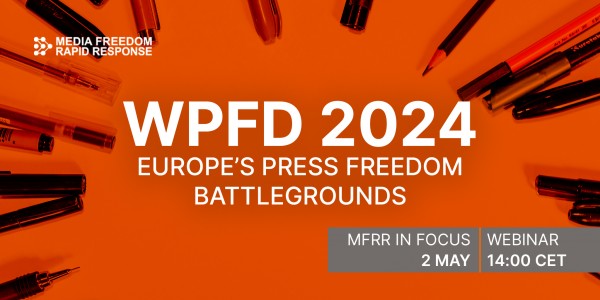A Slovak court last week reportedly blocked publication of a book implicating a private equity group in a high-level graft scandal.
Local media said a Bratislava court on Thursday granted the Penta group’s request for a preliminary injunction against a book containing information from the so-called “Gorilla” file.
The file, which has already circulated online, is said to contain transcripts of conversations intercepted by the Slovak Intelligence Service (SIS) in 2005 and 2006 during a meeting between top officials in the right-wing government of then-Prime Minister Mikulas Dzurinda and Penta executives who allegedly bribed the officials in exchange for lucrative privatization deals.
Reports indicated that the injunction prohibits Canadian-Slovak investigative journalist Tom Nicholson from publishing or distributing the book for the time being. However, local media said the court had neither confirmed having issued the order nor cited a reason for its ruling.
Nicholson, who reportedly intended to release his book prior to early elections set for 10 March, told Slovak news agency TASR: “I haven’t seen the court ruling and I don’t even know about it. I’ll consult it with my lawyers and we’ll fight for the truth.”
TASR reported that Penta spokesman Martin Danko declined comment on the case, but the agency quoted him as saying: “As long as we’re in a law-based state, every individual or organisation has a right to claim its rights in a legal way.”
IPI Vice Chairman Pavol Múdry, a member of the board of IPI’s Slovak National Committee, said: “This decision reflects a strange understanding of the Slovak Constitution, which clearly states that censorship is forbidden. I hope that after an appeal by Nicholson and [book publisher] Petit Press a higher court will overrule this really strange ruling.”
IPI Press Freedom Manager Anthony Mills said: “This ruling is extremely troubling coming just over a month before the people of Slovakia are scheduled to vote in early elections. IPI and its subsidiary, the South and East Europe Media Organisation (SEEMO), believe that journalists’ right to report on politicians’ alleged wrongdoing is always of vital public interest, but such information is even more important when citizens are preparing to elect their leaders.”
The scandal caused by the Gorilla file – reportedly named by an unknown SIS analyst – has rocked Slovakia for weeks. On Friday, thousands of angry Slovaks gathered around the country in protest, with demonstrators in Bratislava pelting government buildings with bananas and eggs.
The file first became public in December after it was leaked to the media. Slovakia’s Interior Ministry last month confirmed that it had carried out a surveillance program, but the Ministry declined to confirm the file’s authenticity.
Disclosure of the Gorilla file came on the heels of another wiretapping scandal in November, when reports surfaced indicating that the military counterintelligence service had intercepted the telephone conversations of journalists. Those reports led to the sacking of Defence Minister Lubomir Galko


